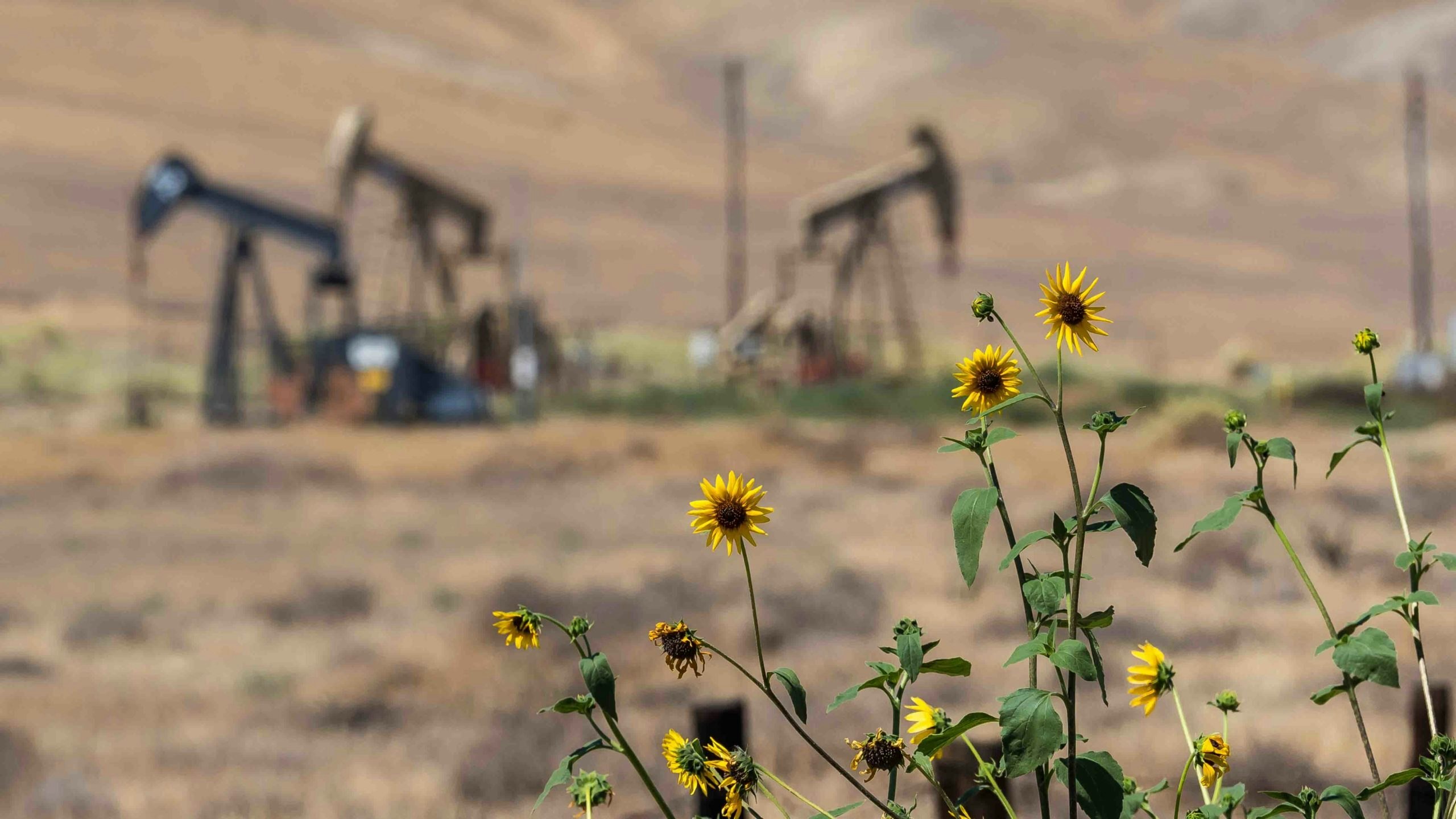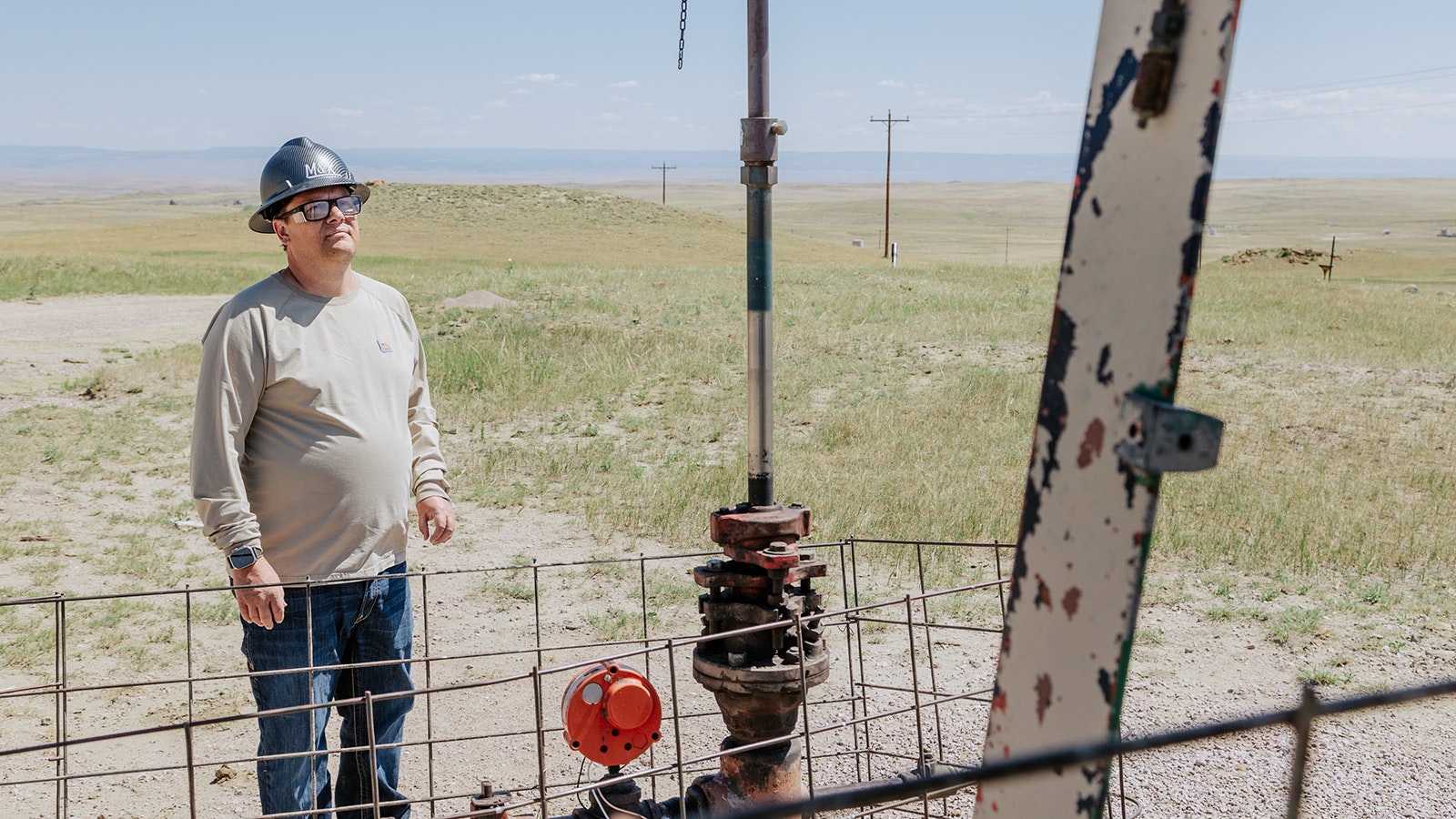Editor’s note: The headline on this story has been changed to clarify allegations of manipulating state oil and gas lease auctions are being made by oil and gas producers.
Some energy industry participants in next week’s Wyoming-led oil and gas lease auction are wondering if the Wyoming Outdoor Council will try to scuttle the sale, or some activist billionaire for that matter.
Electronic auctions to buy oil and gas leases on state-owned land can be challenging.
Anonymous bidders in auctions operated over a private online network by Wyoming’s Office of State Land Investments don’t always tell the full story of an entity’s ulterior motives.
Take, for example, a July 12, 2023, lease auction when executives with Casper-based oil and gas firm Kirkwood Cos. ran into such a problem.
This is when top executives of Kirkwood and land technicians who understood the value of geologic formations and how to switch over to a backup computer in case it’s needed huddled in the conference room of the family run oil and gas business to bid on a few leases in a 2-minute auction process.
Steve Kirkwood, owner and partner, was at the table, as was No. 2 executive Steve Degenfelder, land manager for the company with more than 3,500 wells in six Rocky Mountain states.
The auction goes quick, and there is little time to think about who is bidding on what, or by how much.
Kirkwood had its eyes on a total of 1,280 acres covering two tracts of land in Sublette County, Degenfelder said.
“There’s an enormous accumulation of gas there,” Degenfelder told Cowboy State Daily of his company’s appetite for oil and natural gas land in the state’s auction.
Rich In Gas
The Bureau of Land Management says the Sublette County land where Kirkwood had interest has one of the richest concentrations of natural gas in the U.S., currently estimated at more than 25 trillion cubic feet.
Kirkwood had its eyes on two tracts in what is technically known as the west flank of the Pinedale (Wyoming) anticline natural gas field in the Upper Green River Basin of west-central Wyoming, located in dusty sagebrush territory just south of Pinedale.
Environmental conservation groups have a disdain for exploration and drilling in this region.
The Nature Conservancy calls the Upper Green River as Wyoming’s take on the Serengeti plains of East Africa, a natural bottleneck where wildlife moves through ancient migratory pathways.
The migration of pronghorn and mule deer from summer ranges in the Greater Yellowstone Ecosystem mountain highlands to winter stomping grounds in the Upper Green River Basin’s sagebrush-covered valley is one of the longest in the continental United States.
“We were bidding on some tracts, and we became the successful bidder,” said Degenfelder, whose suspicions on the auction were aroused when he was contacted by an official with the Wyoming Outdoor Council who left a voicemail on his phone.
The senior official with the statewide conservation advocacy group wanted to know if Degenfelder would be willing to give up the leases.
When Degenfelder returned the call, he was told that the two tracts that his company bid on were in an “antelope migratory bottleneck” and that drilling on the land could impact the pronghorn who live there.
The Wyoming Outdoor Council official also admitted to Degenfelder that it was his group that had engaged in a bidding war with Kirkwood and had significantly driven up the price of the two tracts.
Driving Up Costs
“We estimated that we overpaid on the land by $14,000,” Degenfelder said.
“We would have gotten it for $6 an acre had the Wyoming Outdoor Council not been bidding,” he said. “This is very exploratory acreage, and that $19 an acre doesn’t sound like much, but this is for exploration, which is the first thing you need to do before getting a lease.
“There is concern for billionaires like (Michael) Bloomberg or (Bill) Gates or (Warren) Buffett putting in bids for these leases with no intention of ever developing them for oil and gas.”
This could wreak havoc on a state like Wyoming, which depends on oil and gas revenue for funding everything from education to penitentiaries.
Carl Fisher, executive director of Wyoming Outdoor Council, did not return phone calls or emails seeking comment on his conversancy group’s strategy in last July’s auction and whether the group would attempt to engage in the same type of bidding process in next week’s scheduled auction.
Degenfelder said that the OSLI turned down his company’s request to be reimbursed in the land auction for overpayment of several thousands of dollars.
“Our request was turned down,” he said.
Dianna Wolvin, the OSLI senior lands management specialist, did not return phone calls or emails seeking comment about the dispute with Kirkwood.
Emergency Help
This week, Wyoming Gov. Mark Gordon ran interference on the issue with the hope that this doesn’t happen again.
The governor signed an emergency order to implement changes in next week’s state-led oil and gas lease auction to keep environmental activist groups like the Wyoming Outdoor Council from driving up bids and taking energy-rich properties out of the hands of developers.
During the 2024 Legislature, lawmakers passed State House Bill 141, which redefined qualified bidders.
The State Board of Land Commissioners approved the rule changes at its June 6 meeting as part of its regular business.
Since the auction is scheduled for July 8-10, the board also approved emergency rules to implement the changes before the auction to ferret out unqualified bidders.
The new law requires the OSLI, which runs the auction three times a year, to determine a qualified bidder and nip in the bud any shenanigans in advance.
Not The First Time
This isn’t the first time that the OSLI has encountered problems with outsiders trying to hurt Wyoming’s interests.
James Magagna, vice president of the Wyoming Stock Growers Association, told Cowboy State Daily that a similar problem erupted about 15 years ago when the Jon Marvel-backed Western Watersheds Project in Hailey, Idaho, attempted to foil his bid to renew leases on state-owned land that had been in his family for more than a century.
“It happened to me personally,” Magagna said.
Magagna had used his state-leased land in the southeast corner of Sublette County to graze more than 8,000 sheep, but the Western Watersheds Project tried to outbid him because the group believes in “livestock-free public lands.”
Marvel retired in 2014 from the group he formed in 1993, where he became a major player in the legal fight over protecting the sage grouse and its habitat. Marvel also gained a reputation for bidding against ranchers for grazing rights.
He drove up the prices of those grazing rights through legal battles with ranchers over their operations’ effects on water quality and wildlife habitat.
Eventually, the Legislature came to the aid of Magagna.
“What saved me was the fact that Western Watershed wasn’t properly registered to do business in the state of Wyoming. They are now, but not then,” Magagna said.
“We eventually got Wyoming legislation passed that said if you bid on state trust lands to lease, then you must have a necessary use for the land, like a business for grazing livestock,” he said. “Based on my experience, perhaps legislation is still needed.”
Pat Maio can be reached at pat@cowboystatedaily.com.





